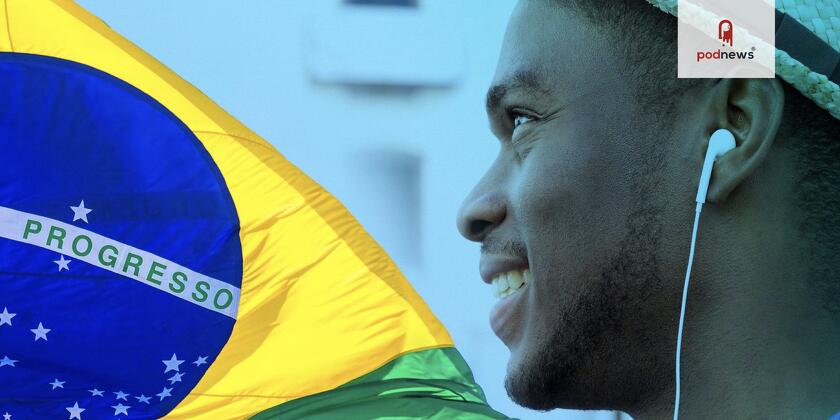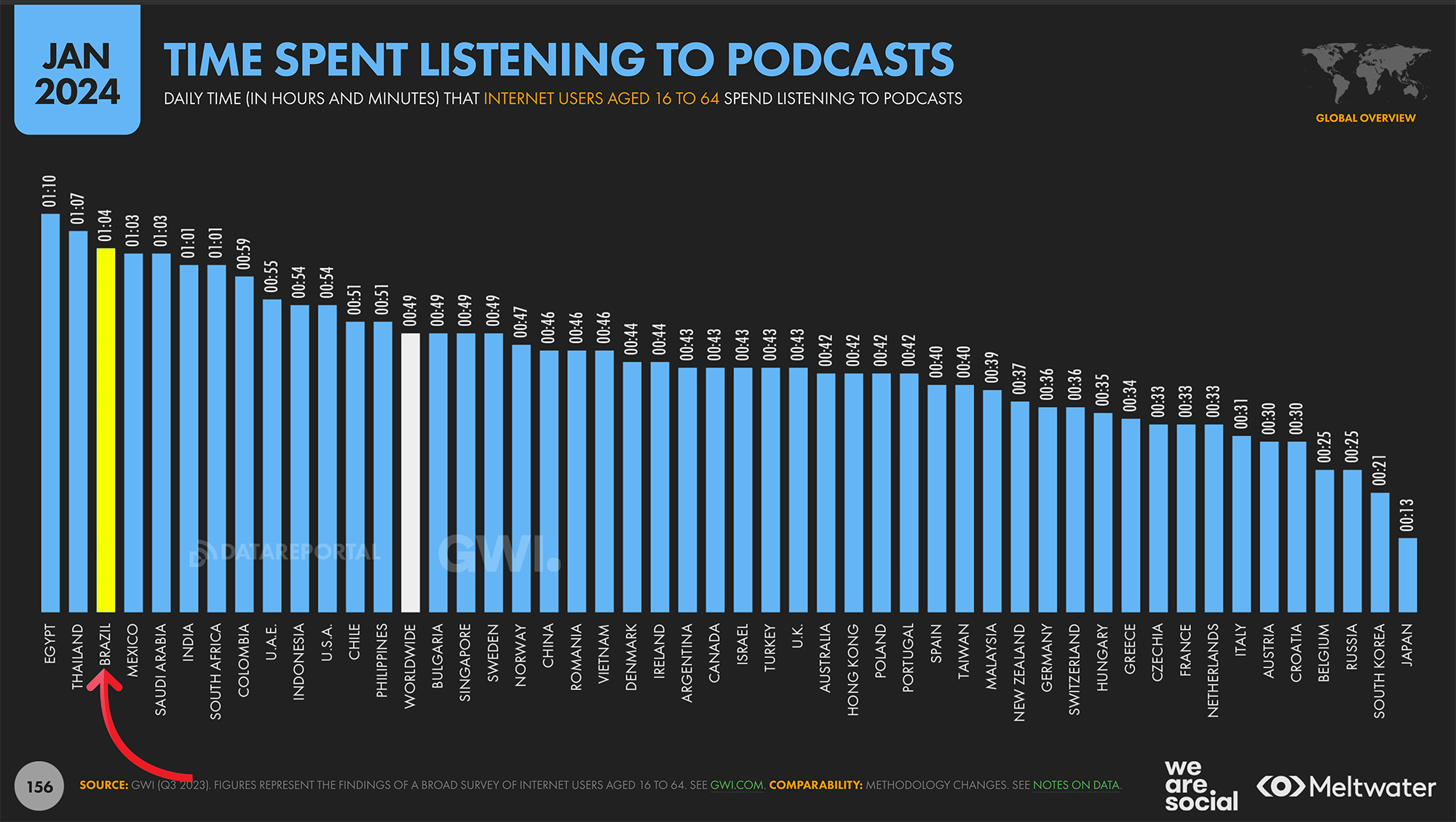
Brazil: the digital giant the podcast industry keeps underestimating

Brazil is one of those countries that outsiders tend to shrink down to clichés — Carnival, soccer, the Amazon. But the numbers tell a different story. At 8.5 million square kilometers, Brazil is only slightly smaller than all of Europe. It’s the fifth-largest country in the world by area and home to 203 million people — a market so vast it finished 2024 as the world’s 10th largest economy. In short: Brazil is not a sideshow. It’s a stage of its own.
And yet, in the global podcasting industry, Brazil is still treated like a footnote. That’s not just an oversight; it’s a strategic miscalculation.
A nation that lives online
If there’s one thing Brazilians do better than almost anyone, it’s showing up online. The Global Digital Report 2024 ranks Brazil second worldwide for time spent on the internet: nine hours and thirteen minutes a day. That’s not usage — that’s residency.

On social media, the numbers are equally staggering. Brazilians average three hours and thirty-seven minutes a day on platforms, making the country the third heaviest user base globally. With 131.5 million mobile internet users, Brazil is the digital powerhouse of Latin America.
Instagram? Fifth-largest audience in the world. YouTube? Essential daily entertainment. TikTok? Adopted by every generation. Streaming music? Second globally. Influencer culture? Third. If there’s a metric for online engagement, Brazil is in the top five.

And this isn’t passive scrolling. Brazilians mobilize online with a fervor that is both admired and feared. During the last Oscars, actress Fernanda Torres, star of I’m Still Here, generated social engagement nearly seven times greater than all her fellow nominees combined. When French newspaper Le Monde panned the film, Brazilian users delivered 22,000 comments in a single day. The Academy’s Instagram eventually blocked Brazilian comments during the live ceremony — proof that underestimating Brazilian fans comes at your peril.

International artists have learned to count on Brazil’s digital muscle. Katy Perry leaned on Brazilian fans during a difficult stretch in her career. Bruno Mars went viral with a video shot here that racked up more than 60 million views. Madonna and The Weeknd have also tapped into the country’s hyper-engaged audiences.
The joke online is that Brazil is the “emergency bailout fund for international artists.” Careers may slump elsewhere, but in Brazil, fan culture can revive them overnight.
Even politics isn’t immune. The infamous “Vampetaço” — a mass protest using a decades-old nude photo of soccer player Vampeta — once forced Donald Trump to shut down comments on posts about trade tariff policies imposed on Brazil. It’s hard to find a better case study in digital activism mixed with irreverent humor.

Beyond memes: a leader in podcast consumption
Beyond memes, Brazil has quietly become one of the world’s most voracious podcast markets. More than half of Brazilians listen to podcasts, averaging 11 hours a week — far ahead of the U.S., where the figure is 7.5.
YouTube is the country’s primary discovery platform, used by 81% of weekly podcast listeners. Video podcasts are especially popular, with nearly two-thirds of listeners in their 30s calling video a must-have. And while English may dominate globally, Brazil is fiercely loyal to local creators: 82% prefer podcasts in Portuguese, and 77% choose Brazilian productions. The top categories? News, technology, and politics.

The paradox is that despite this appetite, global platforms offer Brazil little more than copy-paste versions of tools built for the U.S. or Europe. Monetization systems for independent creators — standard in other markets — barely exist here. Hosting platforms rarely adapt to local pricing. Even startups that want to expand into Brazil struggle with the language barrier (no, Portuguese is not Spanish) and the challenge of recalibrating services for the Brazilian real.
The result? Billions in potential revenue left on the table.

Time to Wake Up
Brazil isn’t waiting to be “discovered.” It’s already a digital giant with a podcasting culture that rivals the biggest markets in the world. What it lacks is recognition — and infrastructure. Tools in Portuguese. Monetization systems that work in a local economy. Software designed for how Brazilians actually consume media.
In my own work with Bicho de Goiaba, I had to personally convince Justin Jackson, founder of Transistor, to build a viable solution for a Brazilian client. That shouldn’t be the exception; it should be the rule.
For global platforms, the choice is clear. Keep clinging to a U.S.–Europe axis and leave Brazil untapped — or recognize that one of the most passionate, engaged, and opportunity-rich audiences on the planet is already here, waiting.
The digital era is about real connection. And ignoring Brazil isn’t just shortsighted — it’s bad business.
This article was translated from Portuguese with some help from AI.

































































































